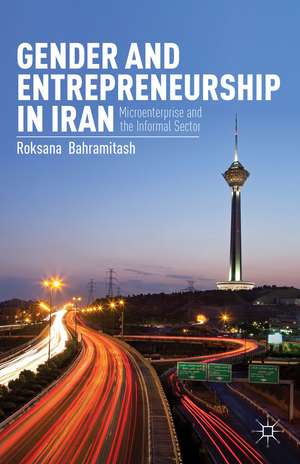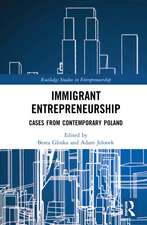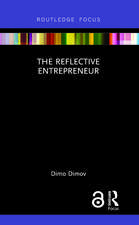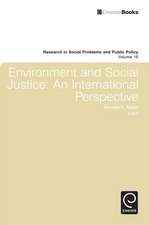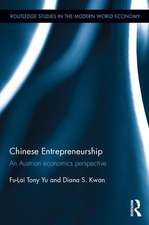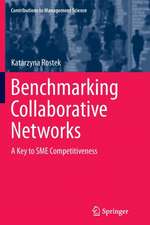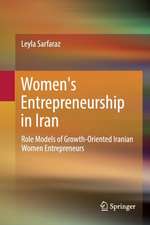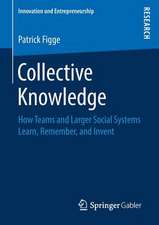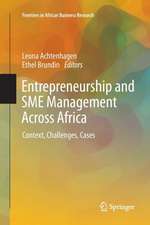Gender and Entrepreneurship in Iran: Microenterprise and the Informal Sector
Autor R. Bahramitashen Limba Engleză Hardback – 28 oct 2013
| Toate formatele și edițiile | Preț | Express |
|---|---|---|
| Paperback (1) | 635.31 lei 6-8 săpt. | |
| Palgrave Macmillan US – 10 dec 2015 | 635.31 lei 6-8 săpt. | |
| Hardback (1) | 640.06 lei 6-8 săpt. | |
| Palgrave Macmillan US – 28 oct 2013 | 640.06 lei 6-8 săpt. |
Preț: 640.06 lei
Preț vechi: 753.01 lei
-15% Nou
Puncte Express: 960
Preț estimativ în valută:
122.51€ • 126.25$ • 103.43£
122.51€ • 126.25$ • 103.43£
Carte tipărită la comandă
Livrare economică 03-17 martie
Preluare comenzi: 021 569.72.76
Specificații
ISBN-13: 9781137342867
ISBN-10: 1137342862
Pagini: 236
Ilustrații: X, 223 p.
Dimensiuni: 140 x 216 x 20 mm
Greutate: 0.41 kg
Ediția:2013
Editura: Palgrave Macmillan US
Colecția Palgrave Macmillan
Locul publicării:New York, United States
ISBN-10: 1137342862
Pagini: 236
Ilustrații: X, 223 p.
Dimensiuni: 140 x 216 x 20 mm
Greutate: 0.41 kg
Ediția:2013
Editura: Palgrave Macmillan US
Colecția Palgrave Macmillan
Locul publicării:New York, United States
Cuprins
Introduction 1. Social Capital, Social Net Work and Micro Enterprise 2. Women and the Informal Economy: A Literature Review 3. Women's Employment in Iran: An Overview 4. Gender and Informal Economy in Iran: A Review of Previous work 5. Field Work: Female Workers 6. Field Work: Male Workers: Comparing the Two Sample (Male with Female) Conclusion
Recenzii
"Dr. Bahramitash's book is skillful, exceptionally intelligent, well-thought through, clear, and graceful. Her commitment to social justice and connecting community level analysis to the larger global context is commendable. Bahramitash meticulously studies the informal economy in Iran and skillfully brings the gender dimension to her analysis. She gives a voice to women who are leaders, care givers, care takers and financial contributors to their families and communities but yet are invisible, un-acknowledged, and under-valued. She combines the unique skills of a sophisticated theoretical thinker with the multi-level techniques of a participant observer and a social scientist." - Elhum Haghighat, Associate Professor and Chair, Department of Political Science, Lehman College, City University of New York, USA
"Bahramitash's unique field research among working women in Iran provides invaluable insights into the role of low-income women who work as entrepreneurs in the large informal sector of Tehran and other major cities. The data challenges fundamental stereotypes about women and work in Iran and presumably other Muslim countries." - Eric Hooglund, Professor, Lund University, Sweden; Editor, Middle East Critique
"An impeccable researcher, Bahramitash weaves together theoretical critique and extensive fieldwork to shed light on the little-explored world of women who work in Iran's informal sector. Her analysis of this invisible but powerful economy should be read by development economists, gender researchers, and all who study and care about the millions engaged in informal employment throughout the developing world." - Diana Strassmann, Carolyn and Fred McManis Distinguished Professor in the Practice of Humanities and Director, Program on Poverty, Justice, and Human Capabilities, Rice University, USA; Founding Editor, Feminist Economics
"Bahramitash's unique field research among working women in Iran provides invaluable insights into the role of low-income women who work as entrepreneurs in the large informal sector of Tehran and other major cities. The data challenges fundamental stereotypes about women and work in Iran and presumably other Muslim countries." - Eric Hooglund, Professor, Lund University, Sweden; Editor, Middle East Critique
"An impeccable researcher, Bahramitash weaves together theoretical critique and extensive fieldwork to shed light on the little-explored world of women who work in Iran's informal sector. Her analysis of this invisible but powerful economy should be read by development economists, gender researchers, and all who study and care about the millions engaged in informal employment throughout the developing world." - Diana Strassmann, Carolyn and Fred McManis Distinguished Professor in the Practice of Humanities and Director, Program on Poverty, Justice, and Human Capabilities, Rice University, USA; Founding Editor, Feminist Economics
Notă biografică
Roksana Bahramitash is Visiting Scholar at the University of Montreal, Canada, with the Canada Research Chair of Islam, Pluralism and Globalization. She is a sociologist who earned her PhD from McGill University and has focused on social justice and poverty from a gender perspective. She previously worked as Faculty Lecturer on 'Women in the Muslim World' at the Simone de Beauvoir Institute, Concordia University, Canada, as well as other courses at McGill University, Canada. Originally from Iran, she was active after the Iranian Revolution in literacy projects among peasant women.
